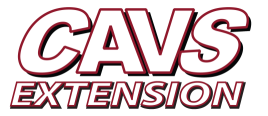Engineering Training
3D Printing with Metals: A Practical Introduction
8D Problem Solving in an Industry 4.0 Environment [Non-Nissan Suppliers]
AutoCAD
Automating Manufacturing Workflows with Power Automate
Basic Geometric Dimensioning and Tolerancing (GD&T)
Ergonomics Essentials
Excellence in Asset Management
FANUC Collaborative Robot Operations and Programming
FMEA and Asset Criticality Analysis Workshop
Implementing Asset Management
Introduction to Aluminum Processing
Introduction to Industry 4.0
Introduction to Steel Processing
Lean 101
Lean Certificate
Lean Certificate - Healthcare
Maintenance and Reliability Best Practices Workshop
Measurement System Analysis: Gage Repeatability & Reproducibility
Operational Finance: Linking Outcomes & Values (Financial Fundamentals)
PFMEA in an Industry 4.0 Environment [Non-Nissan Suppliers]
Power Apps for Smart Manufacturing: Building Custom Solutions
Project Management and Facilitation Skills Workshop
Reliability 4.0: Using Industry 4.0 Tools to Transition from Reactive to Proactive Maintenance
Reliability Centered Maintenance
Root Cause Analysis for Asset Management
Simulation Modeling and Analysis Using FlexSim
Six Sigma Black Belt Certification
Six Sigma Green Belt Certification
Smart Manufacturing: Implementing and Sustaining Industry 4.0
SolidWorks Basic Skills
SPC 101 - Statistical Process Control
Total Productive Maintenance (TPM) Basics
Visual Dashboard Development using Power BI
5S [Onsite]
8D Problem Solving in an Industry 4.0 Environment [Onsite]
Ergonomics Essentials [Onsite]
Kaizen [Onsite]
Kanban [Onsite]
Lean 101 [Onsite]
Line Balancing [Onsite]
Minitab Statistical Software for Data Driven Problem Solving [Onsite]
PFMEA in an Industry 4.0 Environment [Onsite]
Project Management and Facilitation Skills Workshop [Onsite]
Single Minute Exchange of Dies (SMED) [Onsite]
SPC 101 - Statistical Process Control [Onsite]
Standardized Work [Onsite]
Total Productive Maintenance (TPM) 3-day Workshop [Onsite]
Total Productive Maintenance (TPM) Basics [Onsite]
Value Stream Mapping (VSM) [Onsite]
Visual Dashboard Development using Power BI [Onsite]

